Life

Educators and Parents, Sign Up for The Cheat Sheet
Weekly updates to help you use Science News Explores in the learning environment
Thank you for signing up!
There was a problem signing you up.
-
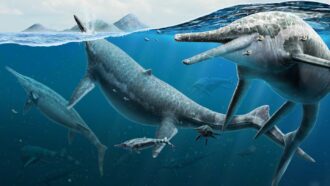 Fossils
FossilsAn ancient ichthyosaur graveyard may have been a breeding ground
Some 230 million years ago, huge dolphin-like reptiles appear to have gathered to breed in safe waters, just as many whales do today.
-
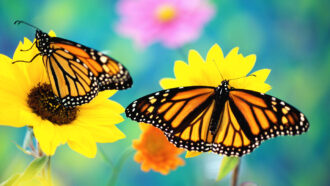 Animals
AnimalsScientists Say: Metamorphosis
Animals that go through metamorphosis look very different as adults than they did as kids.
-
 Brain
BrainSome screen time may aid kids’ recovery from concussions
A few hours a day on digital devices may actually aid recovery by connecting kids with friends and giving their brains some stimulation.
-
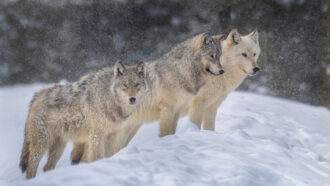 Animals
AnimalsThis parasite makes wolves more likely to become leaders
Gray wolves infected with Toxoplasma gondii make riskier decisions. This makes them more likely to become pack leaders or strike out on their own.
By Jake Buehler -
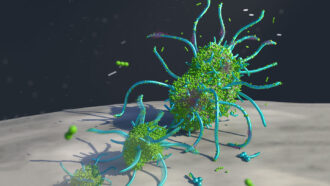 Microbes
MicrobesMouth-crawling superbugs cause severe cavities in kids
In kids with severe tooth decay, fungi and bacteria team up to create superorganisms that can crawl across teeth.
-
 Chemistry
ChemistryExplainer: All about carbon dioxide
Animals and other life on Earth exhale carbon dioxide, which plants use for photosynthesis. But too much of this gas can perturb Earth’s climate.
By Trisha Muro -
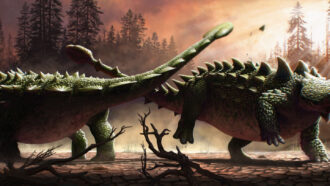 Fossils
FossilsArmored dinos may have used tail clubs to bash each other
Broken spikes on a fossil dino’s sides are consistent with the armored beast having received a mighty blow from another ankylosaur’s tail club.
By Jake Buehler -
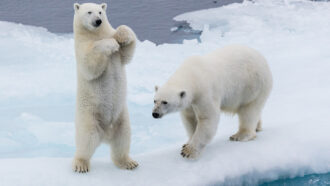 Animals
AnimalsTiny bumps on polar bear paws help them get traction on snow
Super-small structures on the Arctic animals’ paws might offer extra friction that keeps them from slipping on snow, a new study concludes.
By Meghan Rosen -
 Plants
PlantsWhy dandelions are so good at widely spreading their seeds
Individual seeds on a dandelion release most easily in response to winds from a specific direction. As the wind shifts, this scatters the seeds widely.
-
 Health & Medicine
Health & MedicineToddler now thrives after prenatal treatment for a genetic disease
Ayla was treated before birth for the rare, life-threatening Pompe disease. Now a thriving 16-month-old toddler, her treatments will still need to continue.
-
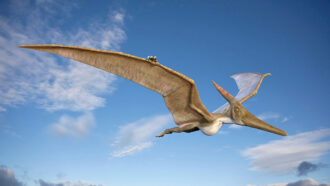 Fossils
FossilsLet’s learn about pterosaurs
These ancient flying reptiles were not dinosaurs, but they were close relatives.
-
 Brain
BrainPlaying video games may improve your memory and attention
The biggest research study of its kind finds that video gamers perform better on some mental tasks than nongamers do.